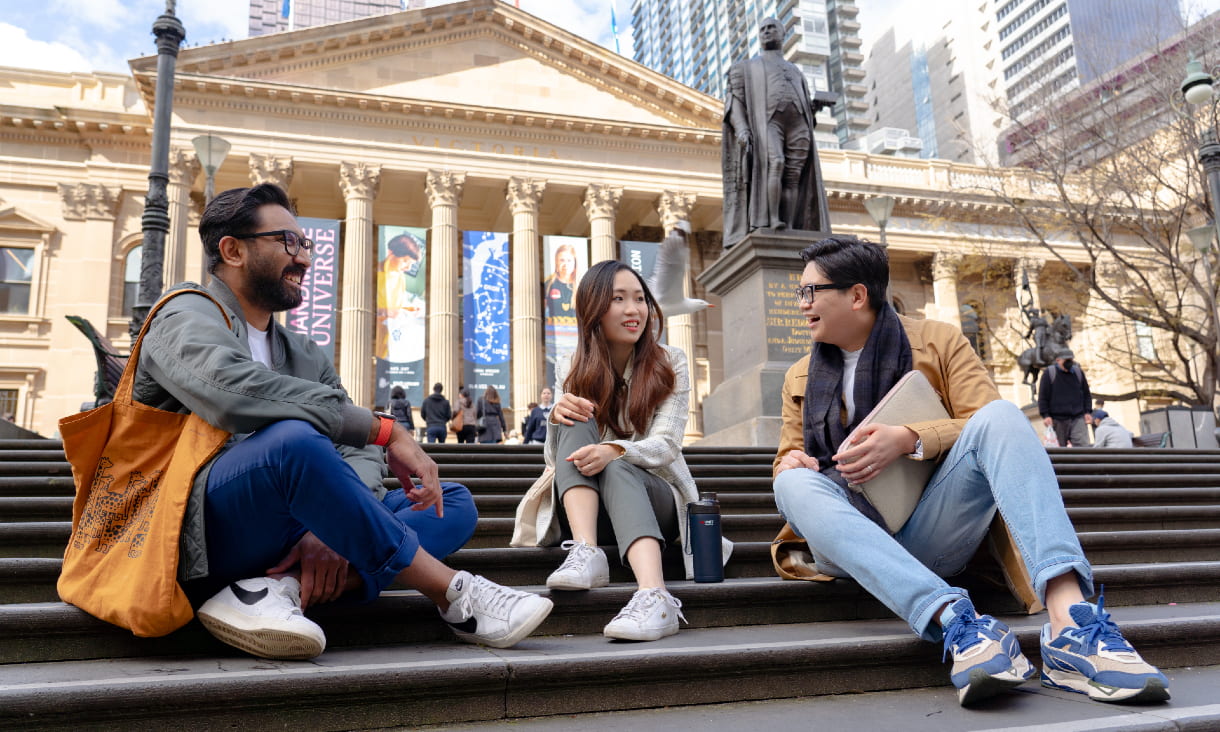Charles Darwin once famously said, “It’s not the strongest species that survives, nor the most intelligent, but the one most responsive to change.”

Prominent social researcher and futurist Mark McCrindle has a similar philosophy when it comes to today’s changing technological and demographic landscape.
McCrindle shared his insights on how to flourish in these changing times, in a presentation at RMIT hosted by Engineers Australia.
He began by outlining how the last decade had seen a confluence of trends coming together.
“We are now more connected than ever before with access to cameras, Google maps, virtual reality and other interactive technology,” McCrindle said.
“Gen Y (1980-1994) is now overtaking the Baby Boomers (1946-1964) to be the largest generation, making up 35 per cent of the Australian workforce.
“And while one-in-five Baby Boomers has a degree, one-in-two Generation Zs (1995-2009) will have a tertiary qualification, making for a very competitive job market in the future.”
These changes are having a huge impact on our workforce as we are encouraged to move through more and more roles.“The average national tenure in a job is currently three years and we know that at the beginning of a career the average is actually more like 1.8 years,” he said.
“For Generation Z, that will mean 17 different jobs during their lifetime, up-skilling and retraining every few jobs, with five different careers working in roles that don’t currently exist.”
McCrindle pointed out that some jobs of the future are already in demand.
“Jobs such as a VR engineer to add value to online real estate and travel platforms, cognitive computer analysts who provide the interface between human function and the technical capabilities for our smart technologies, data experts who can interpret information visually, drone pilots, medical nanotechnologist and cyber security experts – these are all roles that have appeared in the last few years and are increasingly mainstream.”
Trends impact everyone, he said, but those who future-proof themselves don’t just get impacted; they observe the trends and strategically respond to them.
So how can we thrive in these changing times? McCrindle offers three tips to keep in mind.
1. Be innovative
“Look at trends and respond to them in an innovative way.
“We are in an era of global opportunity and connectivity; it’s a digital, social and mobile world.
“The number one search platform for school-aged young people is no longer Google – it’s YouTube, because it’s a generation that doesn’t want to read an article, they’d rather receive information via a video or animation.
“So think about how you can communicate or consume information in a visual sense.
“It’s also a social world where it’s not just what the experts and authorities say – it’s what their peers are saying and so when we can communicate in a visual, digital, social and global way we will speak the language of the next generation.”
2. Be collaborative
"We are in an era of global opportunity and connectivity; it’s a digital, social and mobile world.
“It’s not about being solo. In fact, we’re in more collaborative times than ever before.
“When you think about how leadership used to work, the organisational chart was very hierarchical, with a top-down approach.
“That has now given way to more productive times with smaller, empowered teams where people are multifunctional and are able to move into different areas where there is leadership across the organisation.
“There is no longer the security of fitting within a chain of command, employees are expected to push back, question and participate.
“Of course, there are still organisational leaders, but the difference is everyone must have leadership and influence to contribute to outcomes in this era of collaboration.
“Perhaps the best example of collaboration is the new ‘sharing economy’, with the success of companies such as Uber, AirBnB and Airtasker.
“It’s about organisations empowering communities to solve their own problems: to collaborate and create their own market place.”
3. Be responsive
“In addition to being collaborative and innovative, you need to be responsive: to observe the trends and be nimble in your response to them.
“Importantly, in this new era it’s not just about having the technical skills; it’s also about having good people skills.
“For example, the engineers of tomorrow will not only have to be technically competent, but to be managerial they need to have good communication skills as well.
“In other words, it’s not just about the IQ (intelligence quotient) it’s also the EQ (emotional quotient).
“The power of a brand is not just about connecting cerebrally, it’s also about connecting viscerally – the balance of the rational with the emotional.
“It’s a world of authenticity where you have to walk the talk and you’re expected to engage and influence.”
McCrindle said ensuring your CV includes broader skills such as volunteering and extra-curricular activities will not only show you are adaptable, but will also illustrate you have good people skills.
“If you can be innovative, collaborative and responsive you’ll not only survive these changing times but you’ll thrive during them and the year 2020 will be a very bright future for you.”
A bestselling author, influential thought leader, TEDx speaker and Principal of McCrindle Research, Mark McCrindle is recognised as a leader in tracking emerging issues and researching social trends.
Story: Rebecca McGillivray
You may also be interested in:
Find the right course for you
With over 350 qualifications to choose from, it's never been easier to find the right fit.


